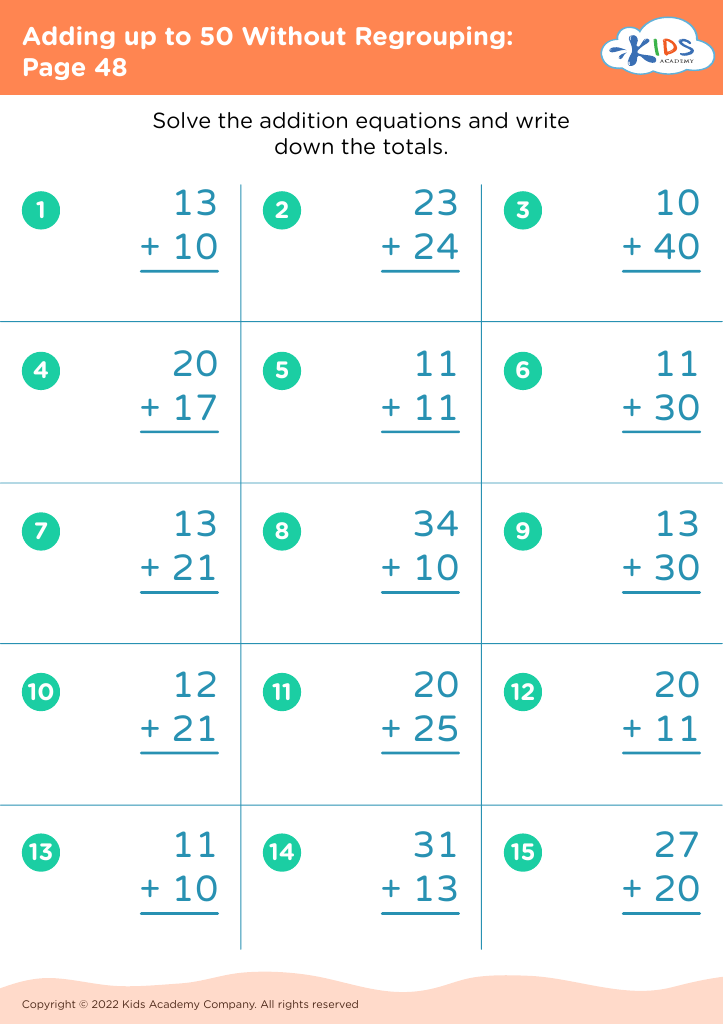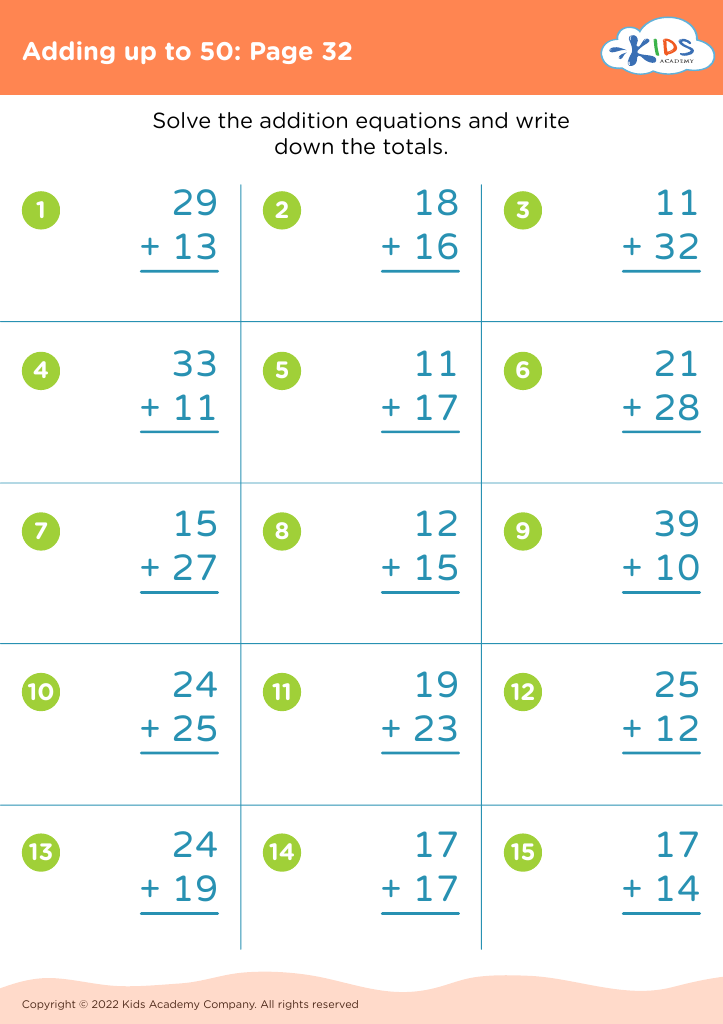Comparing quantities Adding up to 50 Worksheets for Ages 7-8
3 filtered results
-
From - To
Our "Comparing Quantities: Adding up to 50 Worksheets" for ages 7-8 are expertly designed to bolster young learners' math skills. Through engaging exercises, children practice comparing quantities and developing a solid understanding of addition up to 50. Each worksheet offers a mix of fun problems that challenge students and enhance their problem-solving abilities. Ideal for classrooms or at-home learning, these worksheets are perfect for helping kids build confidence and proficiency in basic math concepts. Make math enjoyable and accessible for your child with our innovative and educational worksheets! Download now to boost your child's math success.
At the age of 7-8, children are developing critical foundational skills in mathematics that are essential for their future academic success. Comparing quantities and mastering addition up to 50 is particularly important for several reasons.
First, understanding quantities and the ability to compare them fosters number sense, which is a crucial building block for more complex mathematical concepts. Children who can compare quantities easily can better understand differences in sizes, amounts, and values, enhancing their overall cognitive development.
Secondly, adding up to 50 helps solidify basic arithmetic skills, which is a fundamental aspect of education at this stage. Proficiency in addition not only prepares children for more advanced operations like subtraction, multiplication, and division, but it also reinforces logical thinking and problem-solving abilities.
Furthermore, these skills are necessary for everyday life. From determining the amount of money to save or spend, to understanding measurements in recipes and playing games that involve scores, addition and comparison of quantities are practical skills children will use throughout their lives.
Engaging in these activities also promotes a positive attitude towards math by giving children a sense of achievement and boosting their confidence. Parents and teachers play a pivotal role in nurturing these skills, as their encouragement and guidance make learning enjoyable and effective, laying a strong foundation for future academic pursuits.
















